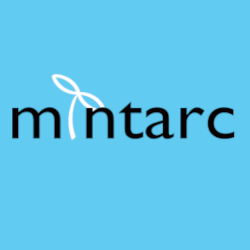NextCloud
From Mintarc Forge
Nextcloud is an open-source, self-hosted platform for file synchronization, sharing, and collaboration. It is designed to provide individuals, businesses, and organizations with full control over their data while offering a comprehensive suite of tools for productivity and communication. As a flexible alternative to proprietary cloud services like Google Workspace, Microsoft 365, or Dropbox, Nextcloud emphasizes data sovereignty, privacy, and security. Its modular architecture and extensive feature set make it suitable for a wide range of use cases, from personal file storage to enterprise-grade collaboration.
At its core, Nextcloud enables users to store and access files across devices through web interfaces, desktop clients, or mobile apps. It supports file synchronization between devices and offers advanced sharing capabilities. Files can be shared via public links with password protection, expiration dates, or restricted permissions (e.g., read-only or no-download). Administrators can enforce sharing policies to ensure compliance with organizational standards. Additionally, Nextcloud includes features such as versioning (to restore previous file versions), trash recovery (to restore deleted files), and offline access to favorite files.
Nextcloud extends beyond file storage by integrating a broad range of collaboration tools. Its integration with office suites like OnlyOffice or Collabora Online enables real-time collaborative editing of documents, spreadsheets, and presentations directly within the platform. The "Talk" application provides secure video conferencing and chat functionality with end-to-end encryption. Groupware features such as calendars, contacts, and email integration further enhance its utility as a productivity hub. The platform also supports advanced project management tools like Kanban boards.
Security is a cornerstone of Nextcloud's design. It employs multi-layered encryption to protect data at rest (server-side encryption), in transit (TLS/SSL), and on the client side (end-to-end encryption). Features like brute-force detection, Content Security Policy (CSP), and Same-Site Cookie settings harden the platform against common attack vectors. Unique innovations such as "Video Verification" ensure secure identity confirmation during sensitive file-sharing operations by requiring recipients to verify their identity through a video call before accessing shared content. Administrators can also implement granular access controls using Active Directory (AD), LDAP, or OAuth for user authentication.
Nextcloud is particularly well-suited for organizations prioritizing data sovereignty and regulatory compliance. It can be self-hosted on private servers or deployed in hybrid environments using third-party cloud infrastructure while maintaining full control over data location. This flexibility allows organizations to comply with stringent privacy laws such as GDPR or HIPAA. Features like "File Access Control" enable administrators to define rules that restrict access based on metadata such as IP address or device type
The platform's modularity is another key strength. Nextcloud's App Store offers hundreds of extensions that expand its functionality—ranging from AI-powered tools like image recognition and text processing to integrations with third-party services like Slack or Microsoft Teams. For instance, AI features include face recognition in photos, suspicious login detection through machine learning algorithms, and even text processing using large language models (LLMs). These apps can be installed selectively based on organizational needs.
Scalability is a critical aspect of Nextcloud's architecture. It supports deployments ranging from small teams to large enterprises with thousands of users. The introduction of "Nextcloud Hub" has further streamlined its capabilities by integrating core applications like Files, Talk, Groupware, and Office into a unified interface. Recent advancements include AI-driven features such as smart inboxes for email management and machine translation for multilingual collaboration.
Privacy-conscious users benefit from Nextcloud’s ethical AI framework. The platform categorizes AI features based on their adherence to open-source principles, availability of training data/models for self-hosting, and whether they process data locally or via third-party services. This transparency ensures users can make informed decisions about which features align with their privacy requirements.
Nextcloud is a open-source solution that combines enterprise-grade file sharing with advanced collaboration tools while prioritizing security and data sovereignty. Its modularity allows for extensive customization to meet diverse needs across industries such as government institutions, educational organizations, healthcare providers, and enterprises seeking alternatives to proprietary cloud platforms. By offering full control over data alongside cutting-edge features like AI integration and real-time collaboration tools, Nextcloud remains one of the most versatile platforms in the open-source ecosystem.
